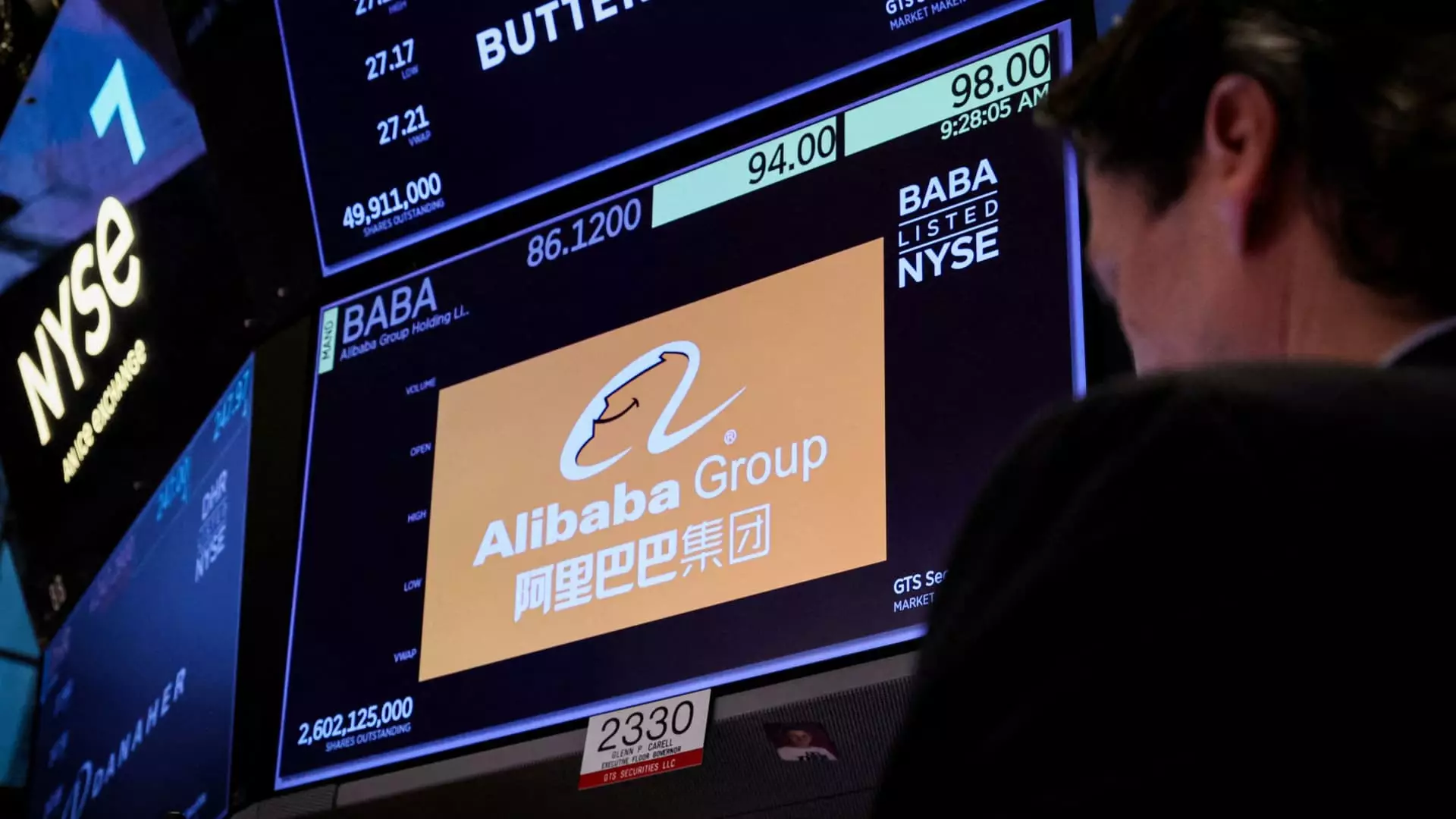Alibaba Group Holding Limited has dramatically re-emerged as a focal point of interest in the market, particularly for investors with an eye on artificial intelligence (AI) opportunities in China. The company’s U.S.-listed shares have skyrocketed by almost 70% in the early months of 2025, signaling a robust recovery for the e-commerce titan. Central to this bullish sentiment is not just the growth of simplistic e-commerce but a surge in AI-related revenues, which have reportedly more than tripled for six consecutive quarters by the end of December 2024.
The AI Revolution: Alibaba’s Strategic Play
Alibaba’s strong performance in the AI domain is epitomized by its innovative Qwen AI model, which positions the company as a formidable competitor against established rivals like DeepSeek. The successful integration of AI into its business model has allowed Alibaba to secure significant contracts, including a notable agreement involving iPhones sold within China. This strategic pivot towards artificial intelligence can be viewed as Alibaba’s response to an increasingly competitive landscape where technology and innovation are paramount.
During this wave of renewed optimism, founder Jack Ma’s public reappearance generated headlines that were as much about his symbolic significance as his business acumen. Attending a crucial meeting with President Xi Jinping alongside other industry leaders, Ma’s presence underscored the potential for government support for tech enterprises, further enhancing investor confidence in Alibaba.
The market reactions have been bolstered by optimistic forecasts from several analysts. Jefferies, for instance, has set a price target of $156 for Alibaba shares, indicating a potential upside from existing levels, while UBS recently shifted its focus from competitor PDD to Alibaba, citing its exposure to lucrative AI sectors. Such transitions in analyst sentiment showcase a belief in Alibaba’s capability to navigate the robust AI ecosystem, fostering a sense of stability amidst the fluctuations of the Chinese market.
Despite growing enthusiasm for AI investments in China, UBS’s data reveals that the influx into AI-related stocks remains conservative compared to the substantial investing fervor witnessed for their U.S. counterparts. This discrepancy hints at an evolving market where Chinese companies may yet prove their worth in the AI space, increasingly attracting investor capital.
Nevertheless, the path ahead is fraught with challenges. Analysts have highlighted notable competition from market players such as Tencent and Baidu, each leveraging their distinct strategies in the AI landscape. With Baidu’s AI Cloud revenue reflecting a 26% increase year-on-year—amounting to 7.1 billion yuan—there is no shortage of competitive pressure faced by Alibaba.
Market sentiment has generally favored Alibaba, with analysts from firms like JPMorgan maintaining an overweight rating, indicating their belief in sustained growth for the company. However, contrasting perspectives have emerged, particularly from Morgan Stanley, which maintains a more cautious stance with an equal-weight rating and a significantly lower price target of $100. Their analysis points to rising capital expenditures, which surged to 11% of revenues in the latest quarter—an area of potential concern for margins moving forward.
As the market evolves, so too must the strategies employed by Alibaba. The digital landscape remains unpredictable, prompting the company to adapt readily to shifts in consumer behavior and potential regulatory challenges. Moreover, with warnings about weaker consumption and a slower pace of enterprise digitalization, Alibaba would do well to implement robust risk management strategies.
While Alibaba’s impressive ascension in the AI domain positions it favorably in the eyes of eager investors and analysts, it is crucial to recognize the complexities of the current market dynamics. The potential for continued growth exists, but it will require careful navigation of both competitive pressures and inherent risks. As the story unfolds, Alibaba stands at a crossroads where its past achievements may prove beneficial in shaping a future replete with innovation, but continued vigilance will be necessary to maintain its momentum in a rapidly evolving tech landscape.

